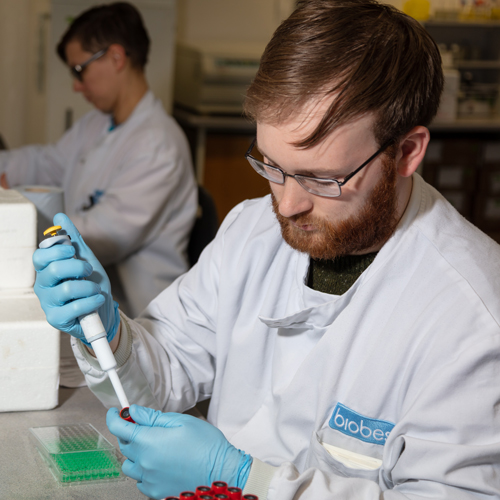ELISA Testing
At Biobest we perform hundreds of ELISA tests every day, learn more about how this testing technique works

The Enzyme-Linked Immunosorbent Assay (ELISA) is a technique used to detect antibodies or infectious agents in a sample.
Antibodies are made in response to infection and so antibody ELISA testing can indicate whether or not an animal has been in contact with a certain virus. An antigen ELISA can tell whether an animal is infected with a virus by detecting it directly.
For an antibody ELISA, antigens are stuck onto a plastic surface, a sample is added and any antibodies for the disease we are testing for will bind to the antigens. Next a second antibody with a marker is added and a positive reaction is detected by the marker changing colour when an appropriate substrate is added. If there are no antibodies in the sample, the second antibody will not be able to stick and there will be no colour change.
For an antigen ELISA, antibodies are bound to a plastic surface, a sample is added and if antigens from the virus we are testing for are present they will stick to the antibodies. This test then proceeds in the same way as the antibody ELISA.